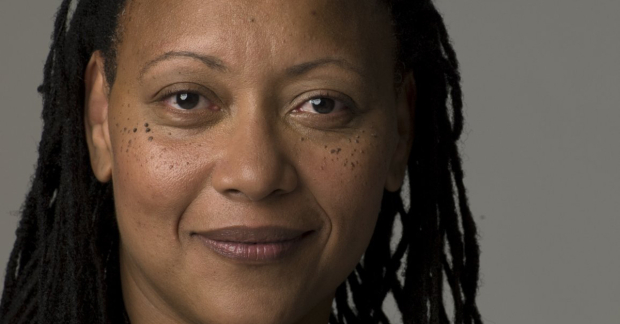Interview: Fredi Walker-Browne's Lena Younger Proves Art Imitates Life In Raisin
Walker-Browne stars in the rarely seen musical at the Axelrod Performing Arts Center.
Fredi Walker-Browne originated the role of Joanne Jefferson in Rent, and returns to the stage this month as Lena Younger for the 50th anniversary production of the Tony-winning musical Raisin at New Jersey's Axelrod Performing Arts Center. Based on Lorraine Hansberry's A Raisin in the Sun – with a score by Judd Woldin and Robert Brittan, and book by Robert Nemiroff and Charlotte Zaltzberg – Raisin is directed by Evelyn Collins, and runs February 24-March 12.
Walker-Browne recently spoke with TheaterMania about the role of Lena and the lasting legacy of Rent, her best-known project.

(image provided by the production)
This conversation has been condensed and edited for clarity.
What was your first introduction to Raisin?
I did a Zoom reading of it during COVID, and of course I've known about it all my life, with the Harlem Renaissance and all the great writers. But I've never dived deeply into Lorraine Hansberry's work until I did that reading. The play is so timeless, sadly, in a lot of ways. Part of me is sad that these stories are timeless. In its intrinsic humanity, the play shines purely through.
Tell us about Lena Younger.
Lena Younger is the archetype of "Big Momma." She is the evolution of "Mammy." A lot of people didn't really understand that at first. But that is where she stands in the American iconography. She is what made the TV show Good Times possible. That show would not have been possible had it not been for the play Raisin in the Sun, I believe. One icon steps upon the next, and so I think that she is part of that evolution to the point where we ask, "Who is she now?" I would have to think of a more current version of her.
How do you approach the role of Lena Younger differently than those who have played her before?
She is my mom. We all know her. There is no Black woman on Earth who doesn't know who Lena is or who wasn't raised by her in some kind of way. It's all of our stories; not even like making the role your own. I've already lived it. All I have to do is exist in the circumstance that this woman has been given. But her circumstances are not different. I watched my mother raise us without a father and try to pay for the house, as Lena did.
Why is now the right time to bring a new production of Raisin to the stage for the 50th anniversary?
This is such an American story. It's the story of an American family trying to live the American Dream. You can plug almost any ethnicity into this story and have the same exact circumstances. The story is still relevant. Right now, buying a house is one of the hardest things an American can do. Most American kids in the generation Lena was in bought the house but their kids lost it. Their kids have not been able to regain, and are trying to get it to the generation behind them. The concept of building generational wealth is something that has been present in the BIPOC community for a long time and thankfully reawakened. There are sadly so many current things that are relevant about this piece. I think bringing it back is a wonderful thing. Not to mention the score is so interesting, and I'm really curious about how that will be handled and what they're going to do with it.
You surprised audiences by singing "What You Own" with Anthony Rapp onstage after his Without You show. What touches you the most about Rent and its legacy?
I actually wrote a play called #RentStories, and I designed it to be a benefit for theater. When we did Rent Live a few years ago, people reached out from all over the world talking about how Rent had changed their life, and had saved their life. I always think about Jonathan Larson's line, "No story too boring." These stories themselves are their own play. So I ask people all the time to send me their #RentStories to tell me what Rent meant to them, how it changed them, and how it altered their life. Those stories make it into the play. The play is a living play, so it can change all the time. The fact that those stories exist mean everything. It's the greatest part of the legacy that it is still changing and altering people, opening people, expanding their consciousness, allowing them to see themselves, be themselves, love themselves, and love the people around them.








